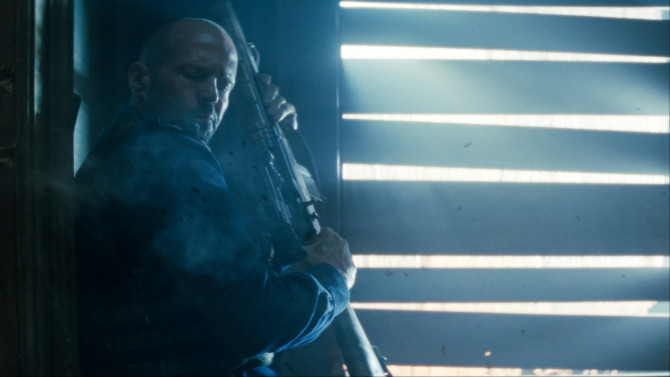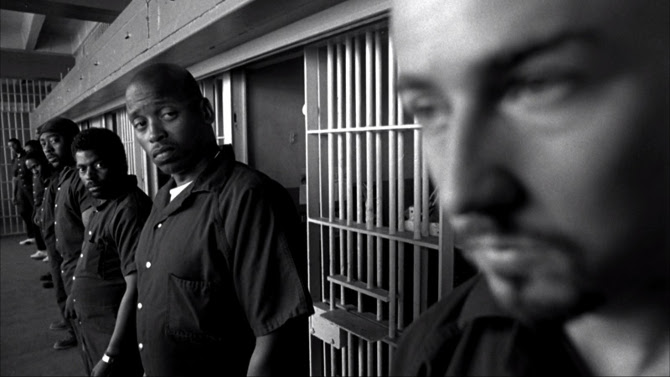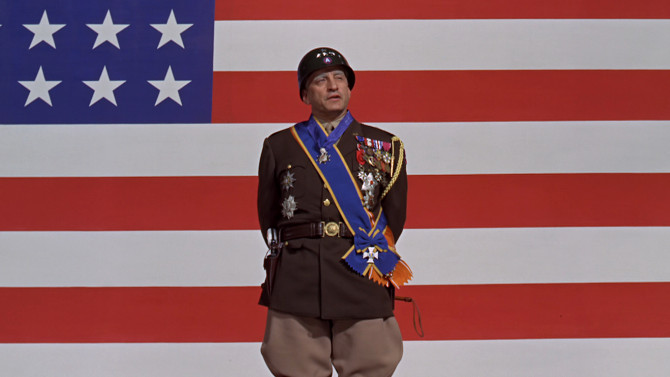
They Call Him the Working Man
Re-teaming together in short order after the success of 2024's The Beekeeper, director David Ayer and star Jason Statham return just one year later with A Working Man (2025)... if the former oozed an unbeatable action hero more along the lines of a John Wick, this newer effort clearly takes some inspiration from the Taken model of hustle and bustle. Actually taking its genesis from a 2014 Chuck Dixon novel entitled “Levon’s Trade”, it was Sylvester Stallone who snapped up its rights... originally adapting it for television through his Balboa Productions. Long story short, it was adjusted to become a movie, Stallone stepped away from starring in it (due to age constraints and a busy schedule with his series Tulsa King), with Ayer soon joining the production, making some additions to the script before directing.
-

A Crowning Achievement
The Girl KingDecember 4, 2015I was lucky enough to cover the inaugural St. Lawrence International Film Festival, a four day event that premiered world class films in two countries (the United States and Canada). The cities of Ottawa, Brockville, Canton and Potsdam had the prestigious honour of hosting the first film festival to ever run in two different countries at the same time. Over the next sixteen days, eight of the films I was able to watch will be reviewed.
-
Star Pick with Eric Duncan
 One Man’s Long Road to RedemptionAmerican History XJanuary 28, 2015
One Man’s Long Road to RedemptionAmerican History XJanuary 28, 2015Though it may feel like it has been a while, I return once again to my reporting on the celebrities of the Children's Treatment Centre Roast of Guy Lauzon. Having covered the panel prior to Christmas, I now tackle the event's master of ceremonies, North Dundas Mayor Eric Duncan (one of the youngest mayors in the history of Canada, the youngest Warden of SD&G in its 165-year history and chair for the Eastern Ontario Warden's Caucus).
-
Star Pick with Jacques Demers
 Demers Enjoyed the Box of ChocolatesForrest GumpDecember 17, 2014
Demers Enjoyed the Box of ChocolatesForrest GumpDecember 17, 2014Sen. Jacques Demers, the former head coach of the Montreal Canadiens who led the team to its last Stanley Cup in 1993 and Habs analyst on RDS, was another one of the roasters at the recent Children's Treatment Centre roast of Guy Lauzon. The man spoke very highly of the worthwhile cause and earlier in the evening he spoke to me of his two favourite movies, the first of which will be discussed today.
-
Star Pick with Chris 'Knuckles' Nilan
 Patton Four Star MoviePattonDecember 17, 2014
Patton Four Star MoviePattonDecember 17, 2014Two weekends ago, Agape held their annual charity boxing event at Nav Can. This year, their invited celebrity was none other than former NHL heavyweight Chris ‘Knuckles’ Nilan, who supported the event in order to raise money to help battle hunger. The Boston Massachusetts native, who played for such teams as the New York Rangers, Boston Bruins and for most of his career, the Montreal Canadiens (winning his only Stanley Cup with the team in 1986), is fondly remembered for holding numerous records that landed him in the sin-bin and being one of only nine players to ever reach more than 3000 penalty minutes.
-
Star Pick with Sharon Osbourne
 Lawrence of Arabia an Epic MasterpieceLawrence of ArabiaDecember 17, 2014
Lawrence of Arabia an Epic MasterpieceLawrence of ArabiaDecember 17, 2014Last week, Sharon Osbourne, the media personality known for her reality television show The Osbournes (along with rock star husband Ozzy and their children), as well as being a judge on America’s Got Talent and more recently, one of the co-hosts of the daytime series The Talk, was gracious enough to sit down with me for a few minutes to talk film. It did not take Mrs. Osbourne long to single out her favourite – the 1962 epic Lawrence of Arabia. She was captivated by the superb scenery and the brilliant cinematography of legendary director David Lean (The Bridge on the River Kwai, Doctor Zhivago), which made this movie and its imagery unforgettable.
-
Star Pick with Jesse Winchester
 Good Will for This Classic 90’s MovieGood Will HuntingDecember 17, 2014
Good Will for This Classic 90’s MovieGood Will HuntingDecember 17, 2014The National Hockey League season is now underway and for those who are fans of the sport, this is an exciting time of year. I was lucky enough to golf with Jesse Winchester this year, and though it was a somewhat rainy afternoon, it was still an excellent day. The Long Sault native is making his way back to our neck of the woods, as his team, the Colorado Avalanche, are playing in Ottawa on Thursday and in Montreal on Saturday – so I thought it would be a good time to visit this NHLer’s favourite movie – Good Will Hunting.





